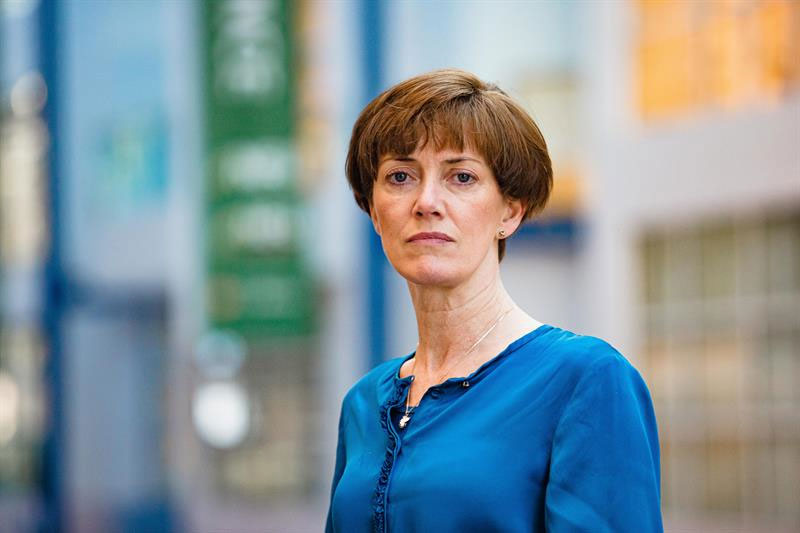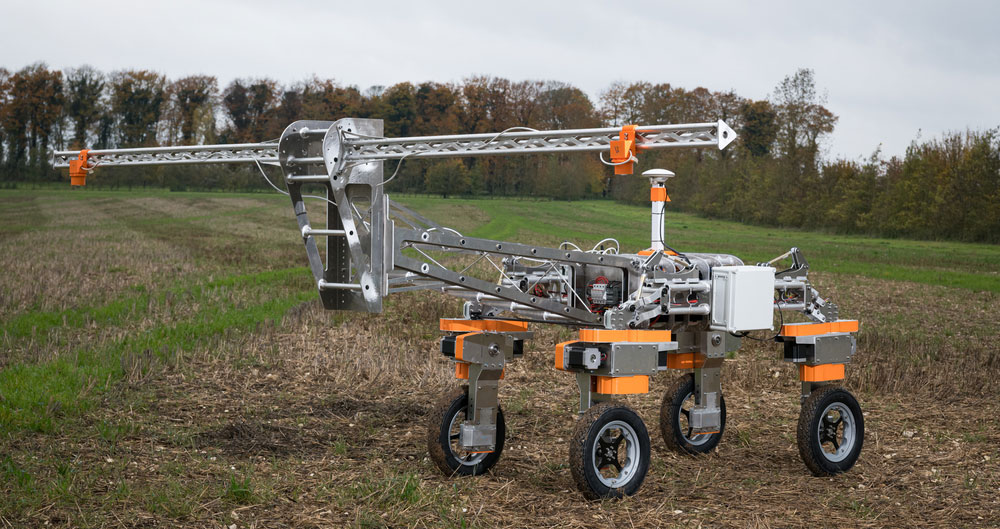The funding will be shared across nine innovative projects that are applying big data, artificial intelligence, novel growing systems and robotics to UK horticulture and farming, with the aim of improving labour efficiency, cutting costs and reducing greenhouse gas emissions.
The package forms part of UK Research & Innovation’s (UKRI) Industrial Strategy Challenge Fund Transforming Food Production (TFP) challenge, which aims to set food production systems on the trajectory to net zero emissions, producing food in ways that are more efficient, resilient and sustainable.
Key among the projects is Robot Highways, led by Saga Robotics in Lincoln, which will receive nearly £2.5 million to perform the largest known global demonstration of robotics and autonomous technologies on a farm. The robots will assist farmers by carrying out essential, labour intensive physical farm processes such as picking and packing fruit and treating crops to reduce critical pests and diseases.
NFU horticulture and potatoes board chairman Ali Capper co-chairs the Advisory Board for the Centre for Doctoral Training at Lincoln University. Commenting on the announcement, she said:
“At this difficult time for our industry, it’s great news to see such investment going into projects that will help British farmers and growers become more efficient and productive in the long run."

“For me, it’s especially exciting to see £2.5m going into developing automation. The NFU has been highlighting a need for development in this area within the Industrial Strategy, and the Robot Highways project will be big step forward in demonstrating robotic picking and packing.
“More importantly, it will help address the complex issues around labour-intensive horticultural production, which have become so prevalent over the past few months.”
Alongside Robot Highways, the other projects receiving funding include:
- REACT-FIRST (Nottingham), led by Deep Branch Biotechnology, will receive over £2 million to use carbon dioxide from Drax Power’s Selby power station and apply its unique CO2-to-protein process to generate food for fish and poultry with up to 75% smaller carbon footprints, no requirements for arable land and minimal water usage.
- Autonomous Growing System (London), led by Optimal Labs, will receive over £2 million to provide autonomous technology that controls climate, irrigation and lighting, enabling any crop variety to be grown in any location. This will significantly increase production levels and resource-efficiency in existing UK greenhouses, helping to protect the UK’s food system against climate change and population growth.
- Production at the Point of Consumption (Maidstone) led by Evogro, will receive nearly £850,000 to research and develop the next generation of autonomous growing systems, to ensure they are affordable for new consumer markets, and to make it an economic method to produce mainstream crops.
- InFarm2.x (London) led by vertical farming business InFarm will receive over £3 million to develop a farming system that can grow a wider variety of fruit and vegetables than is currently possible by growing their crops in vertically stacked levels, rather than on a single level surface, such as a field. It will also use technology including gas sensors and monitoring cameras to observe the growth patterns of their crops, helping to identify the optimal growing conditions, increasing productivity.
- AGRI-SATT (London) led by Feed Algae, will receive over £4 million for its project which is based around an algae growing system that exploits natural seawater to produce food in deserts. This project aims to combine data from the growing system with satellite data to automate production and increase the nutritional quality of the food produced.
- GelPonic (Manchester), led by AEH Innovative Hydrogel, has developed a new growth material that will improve crop yields on farms worldwide. It will receive over £1 million to develop a material that conserves water and protects plants by filtering pathogens and includes a new graphene-based IoT device that allows remote-monitoring of conditions in vertical farms.
- REMEDY (Bath), led by Quality Milk Management Services, will receive over £1.7 million to provide precision technologies to dairy farmers enabling them to access real time data to ensure their farm is as productive, efficient and environmentally friendly as possible. This includes technology such as wearable devices for cows that tracks their behaviour and nutrition, ensuring farmers can make more informed decisions when managing their farm.
- TUBERSCAN-DEMO (Lincoln), led by B-hive, will receive nearly £2 million to develop and test an innovative demonstrator system to measure average potato sizes and yield throughout potato fields, providing insights that will enable selective harvesting to take place, optimising crop yield and resource use. It is anticipated that this technology could generate an estimated 5-10% increase in UK marketable potato production.
You might also be interested in:
More from NFUonline:

